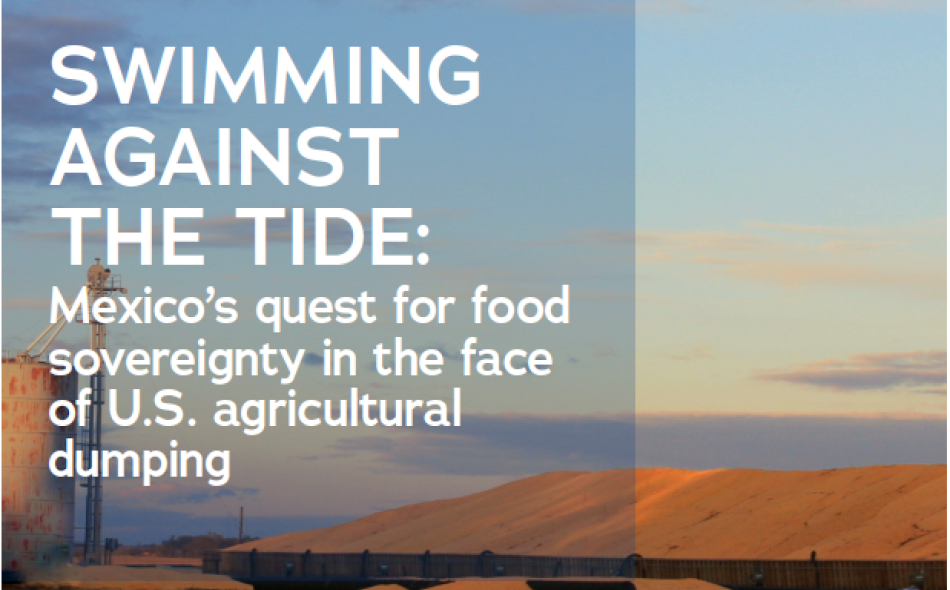Unfair U.S. trade practices undermine Mexico’s food self-sufficiency efforts

Published: May 27, 2023
Category: Market News
New report reveals how U.S. agricultural dumping has led to lost income for Mexican farmers, increased dependency on imports for food staples and high import costs with today’s high prices
A new report from the Institute for Agriculture and Trade Policy’s Timothy A. Wise documents how the United States’ practice of agricultural dumping of cheap exports into Mexico has hampered the Mexican government’s efforts to improve food self-sufficiency. From 2014 to 2020, the U.S. exported corn and wheat at prices 10% and 27% below what it cost to produce them. Collectively, Mexican corn farmers lost $3.8 billion in value for their crop, while wheat farmers lost $2.1 billion. At a time when the Mexican government is seeking to decrease dependence on key staple foods, such practices undermine efforts to stimulate domestic production.
Prior to the North American Free Trade Agreement (NAFTA), Mexico was nearly self-sufficient in corn, importing just 7% of its needs. By 2008, import levels rose to 30%, and in 2022, they reached 38%. Wheat import dependency has risen from 18% before NAFTA to 66% today. Mexico now imports 48% of its grain and oilseed consumption, with just 52% produced in Mexico.
U.S. policies are challenging Mexico’s ambitious goals for reducing dependence on imports. Not only is the U.S. government currently disputing Mexico’s decision to restrict some uses of genetically modified corn, but it has also contributed to Mexico’s levels of import dependence by exporting corn, wheat and other basic staples at prices below the cost of production — an unfair trade practice known as “agricultural dumping.”
Swimming Against the Tide: Mexico’s quest for food sovereignty in the face of U.S. agricultural dumping examines the impact of cheap U.S. exports on five staple food crops—corn, wheat, beans, rice and dairy—that the Mexican government has prioritized in its efforts to boost domestic production and reduce import-dependence. In 1994, NAFTA eliminated most of the trade restrictions Mexico had used to protect its farmers from foreign competition, and in 16 of the 28 years since, the U.S has dumped corn, soybeans, wheat, rice and cotton exports into Mexico at prices 5%-40% below what it cost to produce them. In turn, Mexican producers of these crops experienced price drops of 50%-68% in the 12 years after NAFTA took effect. From 2014 to 2020, U.S. exports of priority food crops came into Mexico at unfairly low prices, undermining the incentives for Mexican farmers to increase production.
“In trying to reverse decades of rural neglect and U.S. dumping, the Mexican government is swimming against some very strong tides,” said report author Wise.
“Reducing import dependence and increasing domestic production of priority food crops are worthy goals, for a variety of reasons: poverty reduction, rural development, increased resilience to price and supply shocks, greater control over the quality of the food Mexicans consume, and even national security.”
Agricultural dumping is an unfair trade practice that is proscribed by a range of international trade agreements. As this report demonstrates, U.S. dumping undermines Mexico’s legitimate efforts to stimulate domestic production of priority food crops and reduce its dependence on imports. In addition, dumping is bad for U.S. farmers and rural communities, as low prices undermine local economies and leave farmers dependent on expensive yet inefficient government subsidies.
Organic & Non-GMO Insights June 2023




